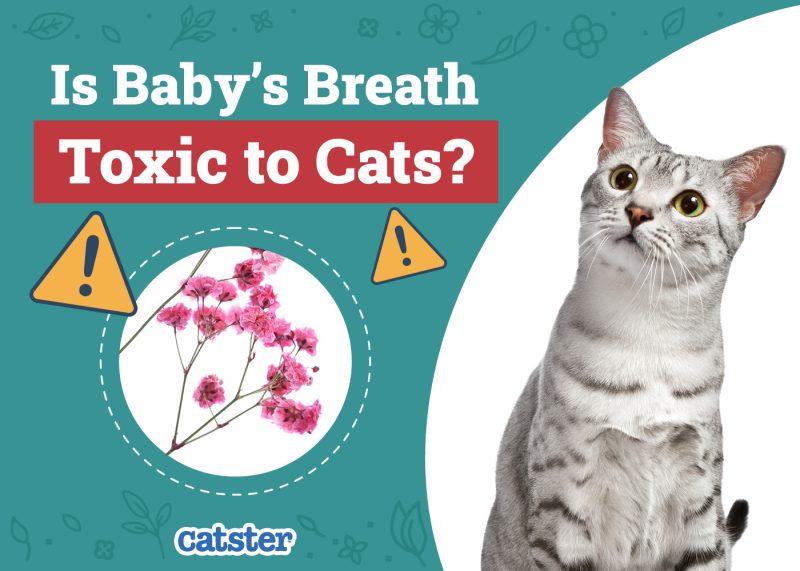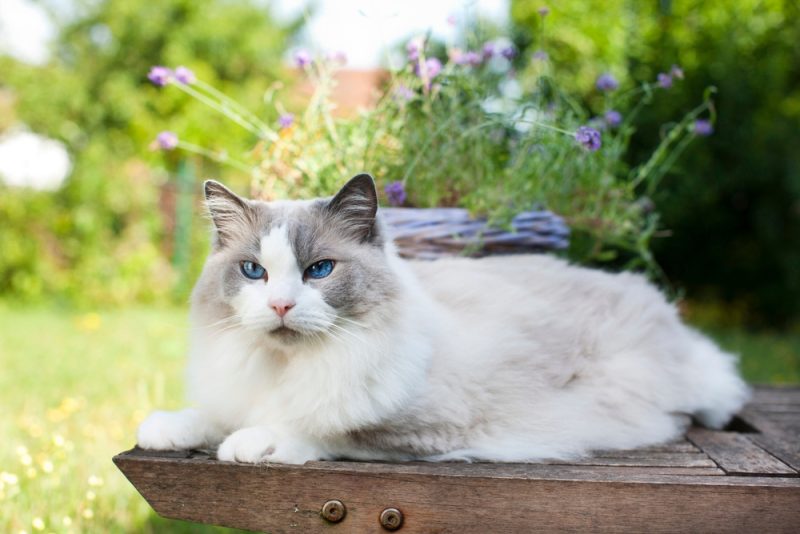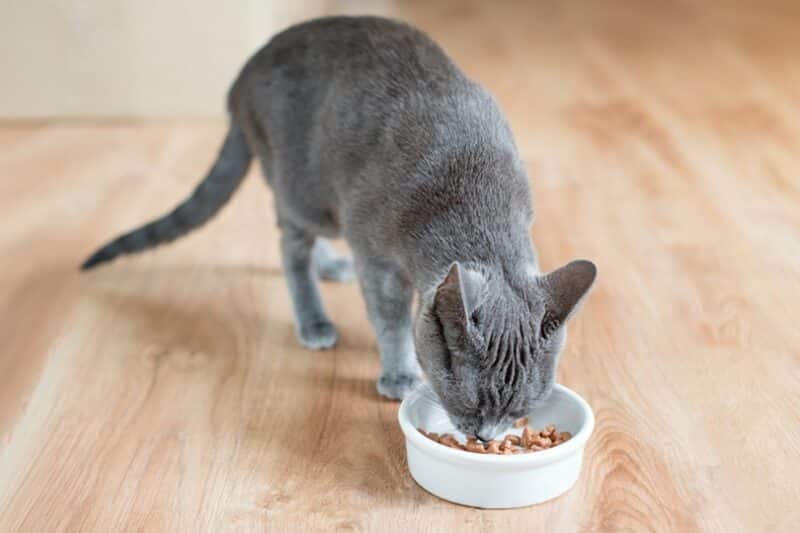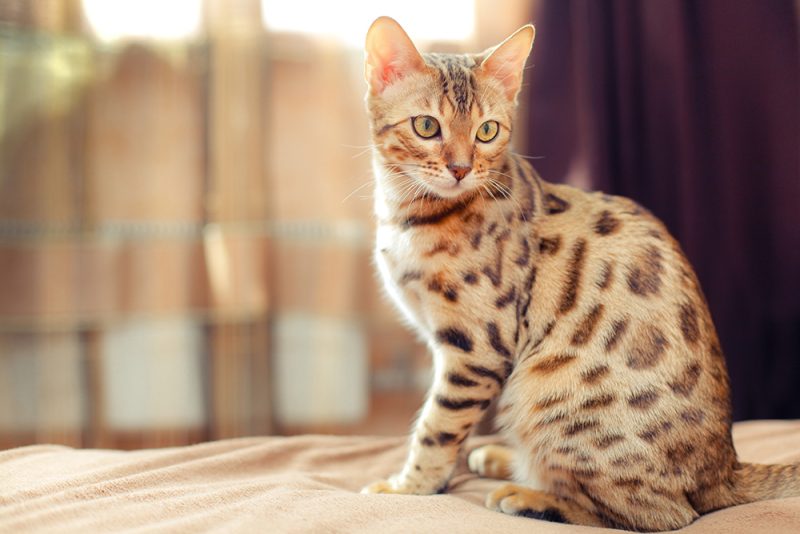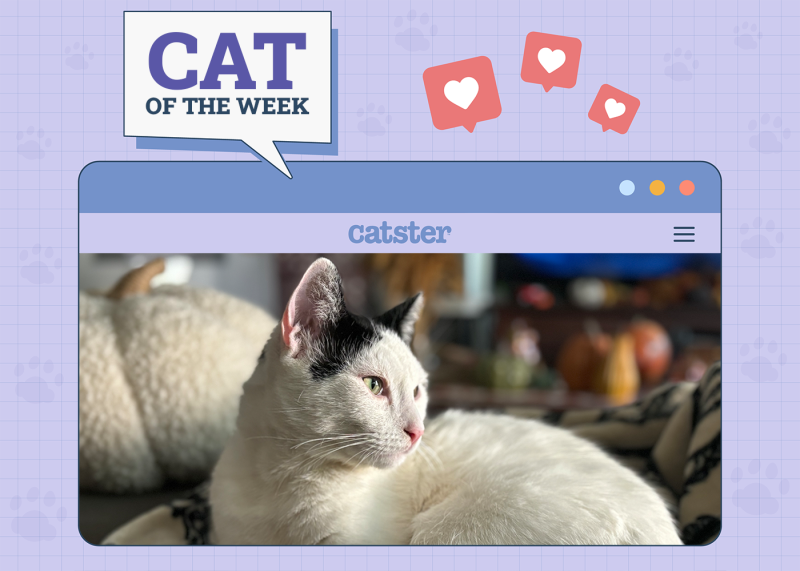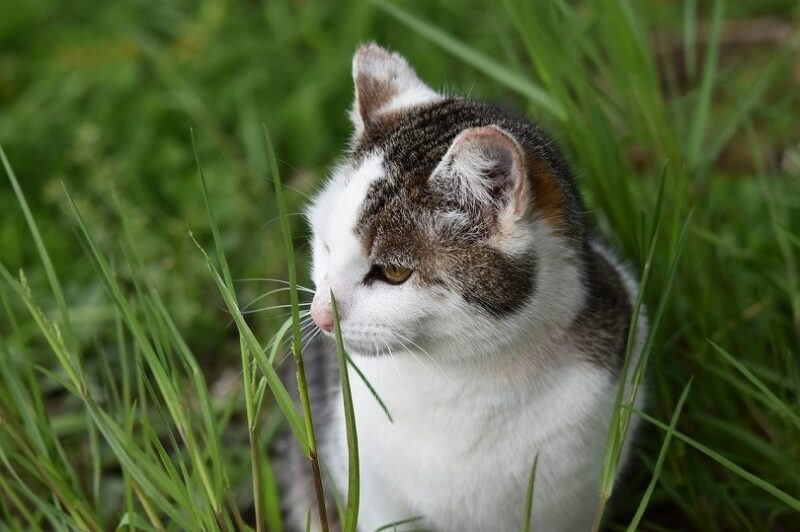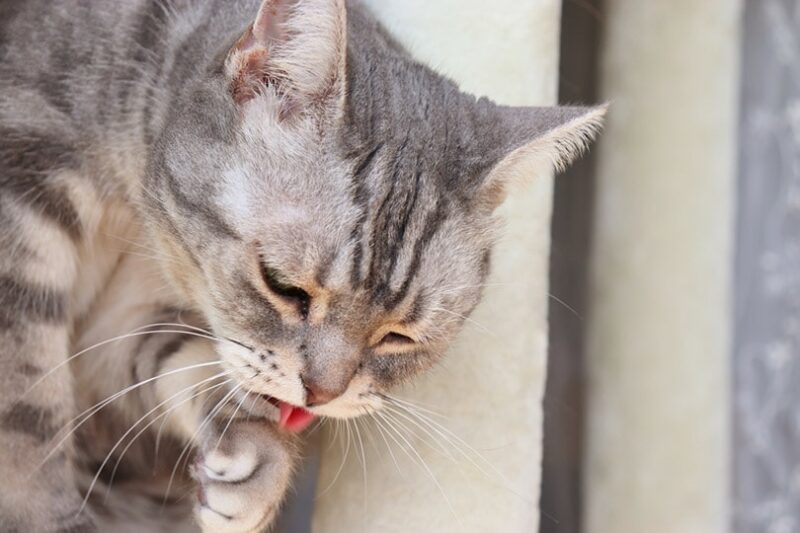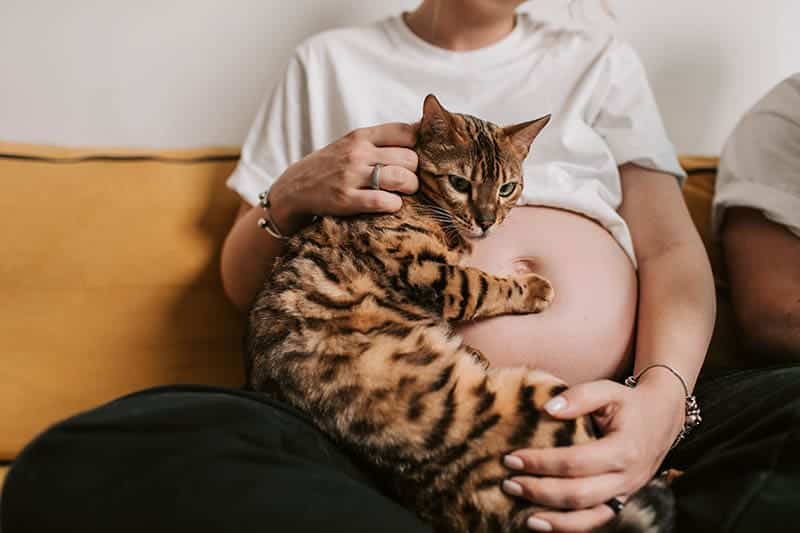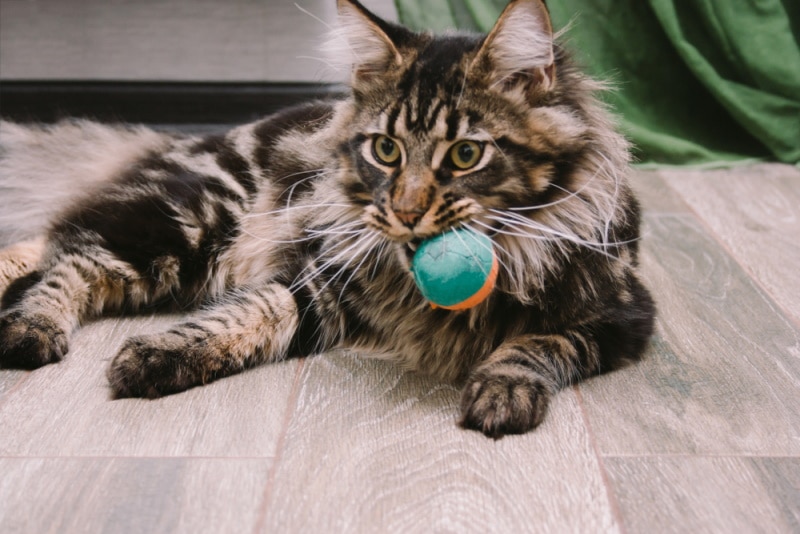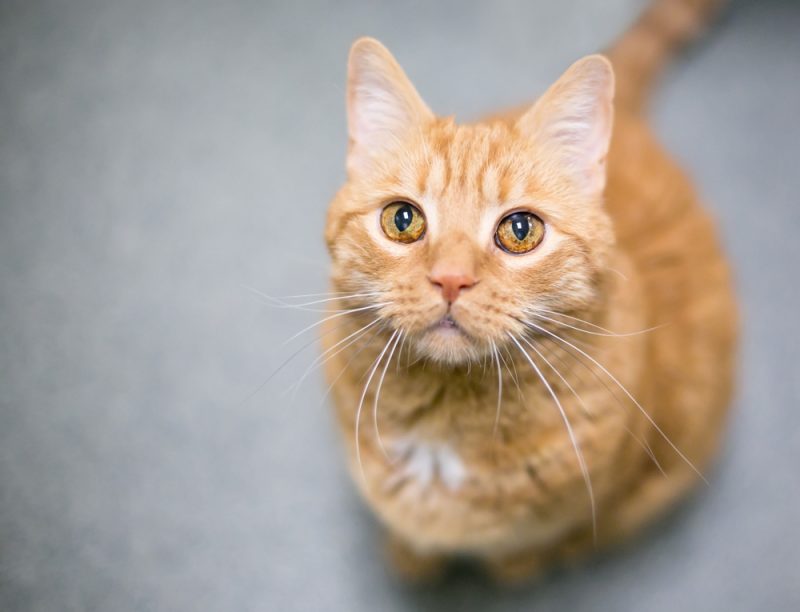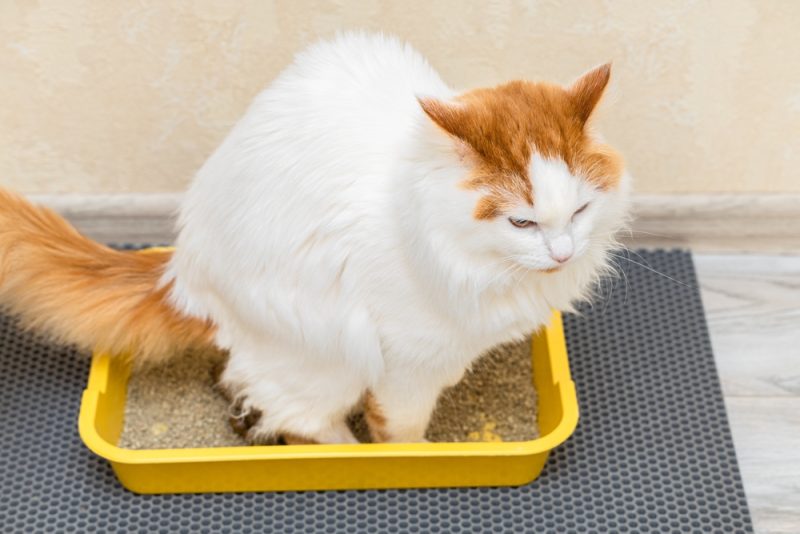Baby’s breath is an extremely common flower in arrangements. The small, white flowers are especially useful at bringing out the colors of other flowers and make a good “background” flower for arrangements. Less commonly, you can also find this flower growing in gardens and even as weeds. It is quite prolific when grown, so it is known to take over gardens and show up in places it wasn’t necessarily invited to.
For the most part, baby’s breath is safe for cats. However, high amounts can cause minor symptoms, such as stomach upset. Smaller cats are more prone to these problems, while larger cats may eat quite a bit before they become affected. Technically, it is classified as “mildly toxic.”
However, the chance of it causing serious problems is rather low. Instead, it will likely just make your cat sick for a bit. Some cats may be more susceptible to problems caused by this flower than others, especially those that have chronic illnesses. Still, the prognosis is typically good.

Symptoms of Baby’s Breath Poisoning in Cats
Baby’s breath is poisonous to cats. However, symptoms are often minor and simply uncomfortable—not life-threatening. There is not always a need to take your cat to see the vet. However, if you do notice any of these symptoms, it may be a good option to give them a call just in case.
Usually, cats will vomit much of the flower up shortly after they eat it. If they vomit most of the flower up, that may be the end of their symptoms. However, other cats may also experience diarrhea, usually after some of the flower has already been digested.
When vomiting and diarrhea are severe, lethargy and loss of appetite may occur. Usually, these symptoms are caused by your cat simply not feeling good. When they feel sick, our felines simply don’t want to eat or move around much. Some cats are noticeably under the weather, while other cats may bounce back faster.
Generally, the biggest worry is that your cat may become dehydrated, which can be deadly in some cases. However, the vomiting and diarrhea are typically not serious enough for this to occur. If your cat appears to be extremely lethargic or shows other signs of dehydration, you may want to give your vet a call. Smaller cats, kittens, elderly cats, and those with underlying conditions are all more likely to have complications due to the poisoning.

Should You Go to the Vet?
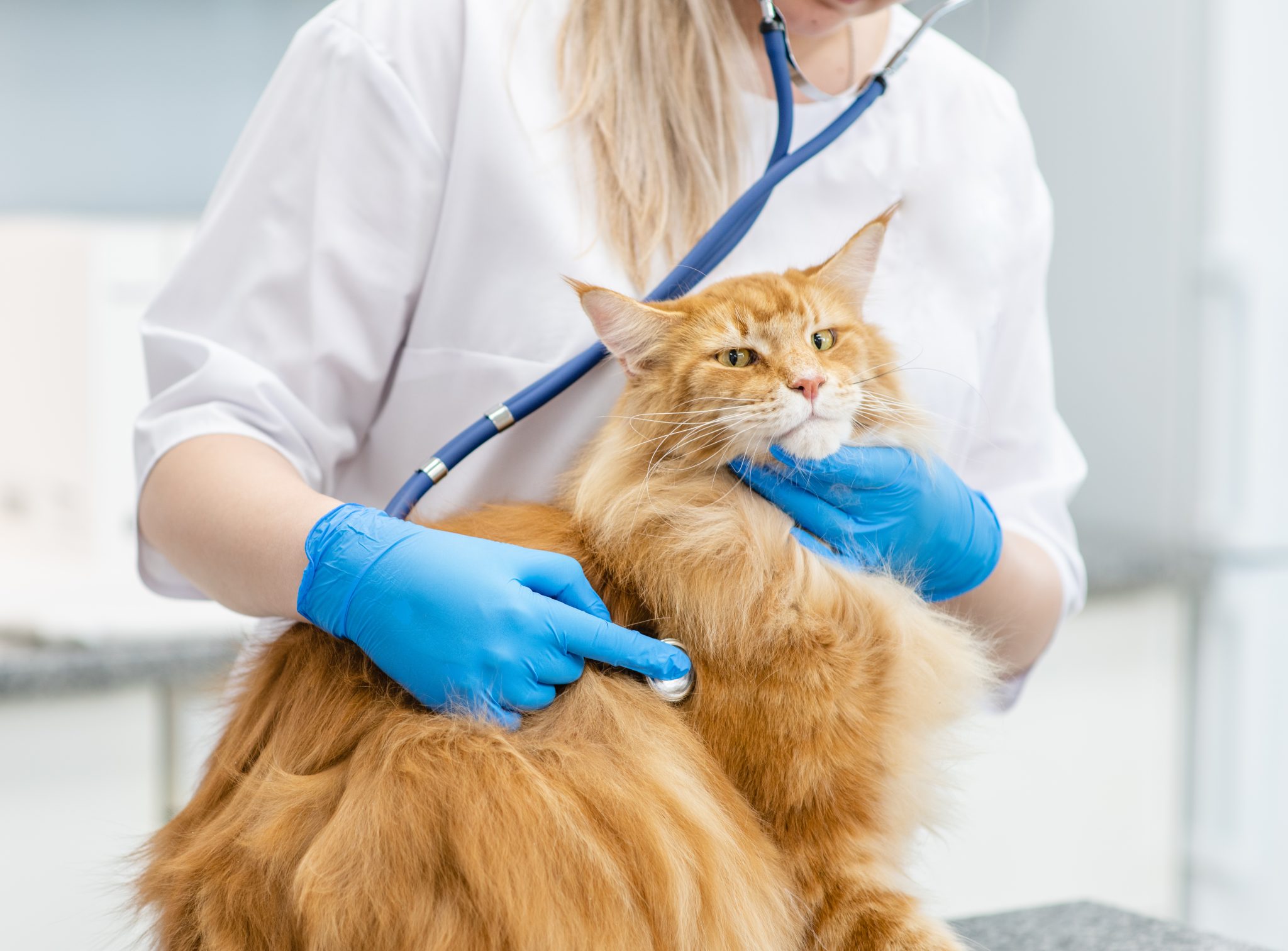
When cat owners hear words like “toxic” and “poisoning,” it usually means a trip to the emergency vet. However, this is not necessarily the case when it comes to baby’s breath. In practically all cases, cats are sick for a few hours and then recover. Once the flower is out of their system, the GI symptoms stop, and the cat begins to act like their old self.
If your cat is stable and healthy, you may want to give your vet a call. However, they will usually not require that you bring them in unless they show signs of dehydration. You may need to keep an extra eye on your cat, but a middle-of-the-night vet trip is not usually required.
With that said, if your cat is young, old, or weak, you may want to watch them a bit closer. Sometimes, the vet may ask you to bring the cat in, especially if they have an underlying condition that would make them more susceptible to dehydration. Diabetic cats may have a particularly hard time since many will be unable to eat for a number of hours.
When in doubt, always call your vet.
If you need to speak with a vet but can't get to one, head over to PangoVet. It's an online service where you can talk to a vet online and get the advice you need for your pet — all at an affordable price!


Conclusion
Baby’s breath is considered to be “mildly toxic.” It typically causes minor GI symptoms like vomiting. However, it’s not terribly serious and most cats recover within 24 hours. The body simply tries to rid itself of the flower, since it is a minor toxin. After the flower is out of your cat’s system, the symptoms stop.
If your cat eats some of these flowers, there is usually no reason to panic. However, if your cat has underlying health conditions, you may want to reach out to your vet. While poisoning from this flower is rarely deadly, it may aggravate underlying health problems in some cats. Small, young, and elderly cats are also more at risk—though they usually do not experience serious problems, either.
Featured Image By: Jumpstory
